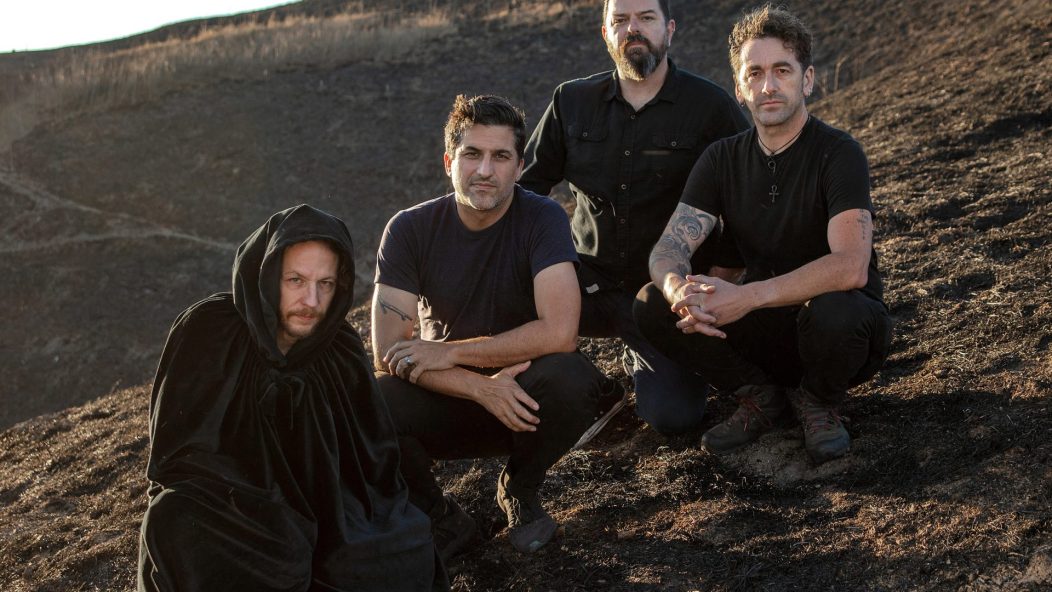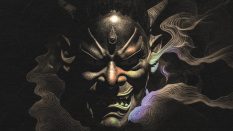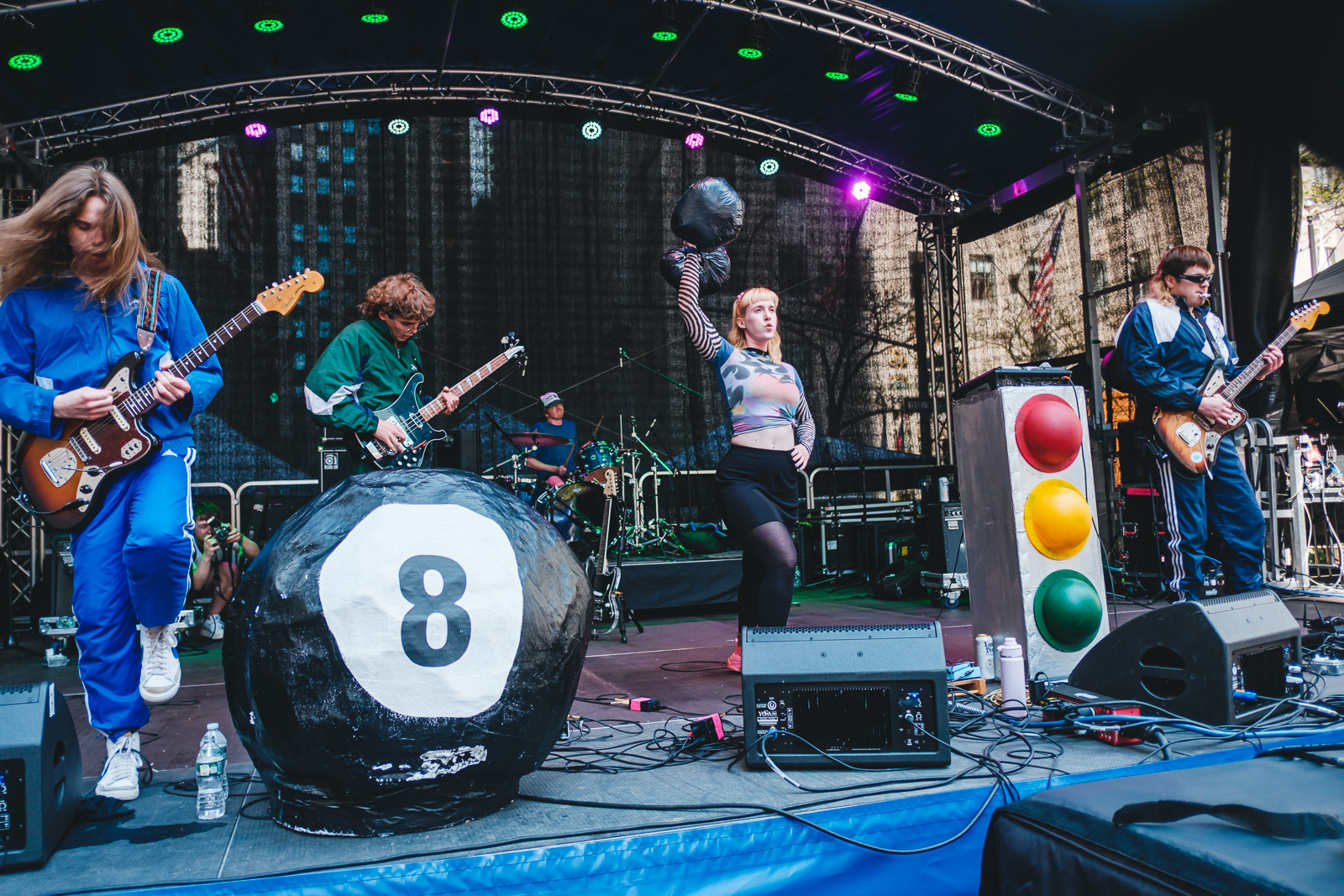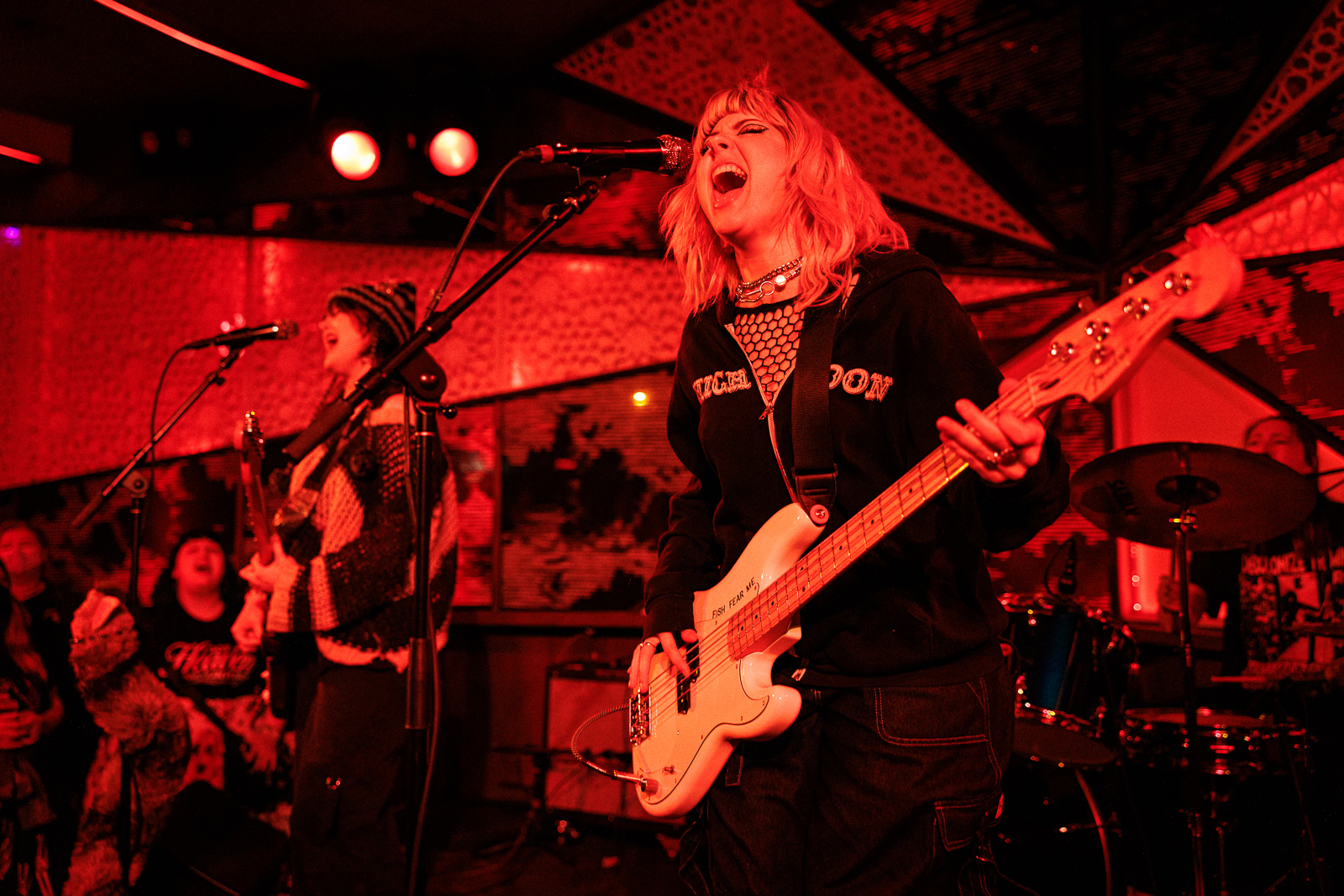
The Atomic Bomb Audition Presents a "Render" of Cinematic, Eccentric Post-Metal (Early Track Stream + Interview)
The Atomic Bomb Audition is a musical collective that has a sound (or sounds) that are difficult to categorize, seeking to play soundtracks to films that don’t exist, which exist as several songs that might be disparate, yet connected to each other in some way, shape, or form. The band has likened their own creative process as kind of a museum of influences, which goes from an unconscious process to the recording studio after an exhaustive process of running through the songs with very little, if any, fat left on their compositions. Future Mirror is an album that’s been over 10 years in development and the result was well worth the wait for a band that was formed over a text about renting a space to break up day to day absurdity.
We interviewed the band about who they are, how they’ve grown over all this time, what being able to finally unleash their sound live means to them, and Invisible Oranges memories for bandmember and former IO contributor Alee Karim. We are also premiering the band’s opening track “Render” here as it is referred to by the band as the “inciting moment” for Future Mirror as they shortly take off in their wildly different, yet intentional directions. Read on below, as the band gave some really great responses to these questions.
…
…
For the uninitiated, what is The Atomic Bomb Audition?
BRIAN: The Atomic Bomb Audition is a band of artists, journeying together as musical friends. We’ve always sought to create “soundtracks for films that don’t exist” with a vast vocabulary of influences unbound to a genre in our creative process. The name reflects a paradoxical word play involving sound, performance, and peace through mutually assured destruction. In that paradox resides a joke, and yet the profound pairing of words has always felt an appropriate label for this project in musical brotherhood. What others take it to “mean” beyond that is totally subjective.
What have the last few years brought you all collectively, musically and all else that matters?
JASON: The pandemic forced a strange surreal period of reflection, and a rediscovery of our friendship roots. In my view, because the norms of a performing musician’s life were derailed to a large extent by the isolation of Covid lockdown, we reconnected to the fundamental reason to play in a band together to begin with, which is about soul and communion. We’ve all grown tremendously as people and artists – most deeply in the process of producing this record – and it felt like the right time to come together and speak to that shared spirit again.
THE NORMAN CONQUEST (CONQ): We also wanted to play big dumb chords really loudly in a room with each other after lock down eased up.
ALEE: We’ve all been dealt a great deal of loss in the death of loved ones—parents, mentors, good friends, heroes, pets. Death has been a reminder and a motivator for all of us. “It’s later than you think,” is one of the band’s mantras. It’s why we wanted to make this album and not just daydream and go, “Oh, well, one day we’ll get into a rehearsal space and into a studio, etc.” We have some shit to say and the time is now to say it.
Future Mirror seems to be an all over affair, pulling from various different influences and making them sound unique, what makes creating music like this so difficult and rewarding?
ALEE: There’s a general sense in this band that nothing can be easy. We’re not really the “write two dozen songs, whittle them down to 10” type of band. There’s not a lot of outtakes from our recording sessions. We put in crazy amounts of time to hash out songs until we feel good about them inside out, top to bottom. That means digging into everything that we love about music, from Morricone film scores to ‘80s pop to sludge metal and unconsciously embedding those elements throughout our songs like a museum.
JASON: For me it’s difficult to silence the internal critical judge, that voice that accompanies any creative ambition and seeks to undermine it. Concerning influences, there’s a fine balancing line between paying homage to them and merely aping their innovations. Most of the artists we love didn’t necessarily know precisely what they were up to when creating their work. They were inspired by a variety of things and used that influence as nutrients when they turned to face their own undifferentiated creative future and began carving their path. We aimed ourselves forward in a similar way. There’s also difficulty in confronting each other in the creative process. Passionate visions clash at times, it can be a heated process. Finding the third way and keeping eye on the common center can be a painful and rewarding struggle. So, the reward is in setting a bar and goal that is just on the other side of convenient reach and striving toward it together, seeing it through to completion.
BRIAN: What can be difficult at times is not what should be in the song, but what is removed from the song. There is a graveyard of amazing riffs and iterations of past songs that got culled during our creative process in the interest of making the song great. Sometimes less is more, and power can usurp cleverness or flash. The most rewarding part comes when that willingness to let go or stop the process yields something magic. This always refills our cup of confidence in our process and collaboration. There’s also an enormous amount of laughter and friendship at play, which while sappy, is a tremendous reward.
THE NORMAN CONQUEST (AKA CONQ): Music is the closest thing to religion that I have, and when I eat at the religion buffet, I like to try ALL the flavors.
We are premiering the opening track for this one, titled “Render” between the slow and doomy intro, the sweetly sung pop-like vocals joined in unison, what inspired this track?
JASON: The seed of Render has been with me for about 10 years. I have a lot to say about what the song means and where the lyrics come from. I suffered a very serious breakdown in 2015 and some of the vision I came out of it with was a devastating clarity about time – its malleability in relation to what we do with it. When we say “I wish I had more time” what we really crave is deeper meaning – higher quality time, not “more” quantitatively. We live and die by our relationship with purpose and meaning. We are not transparent to ourselves. It’s about the discovery and acceptance of yourself as you are, not as you wish you were or how you’d like others to see you. About casting off adolescent fantasies, picking up the flag of your own nature and running joyfully into the battle of life. It’s anti-escapist.
Transitioning from the aforementioned premiere, the dark and moving “Night Vision” takes things to a place in the ‘80s with plenty of dark gothic themes, including a rocking bass line. Was there a particular kind of homage here?
ALEE: This was an ode to 80s power ballads which were my entrance into having any kind of enthusiasm for music. Without an older sibling or parents who had strong musical tastes, it was top 40 radio that molded my tastes initially and that idea of an iconic chorus has remained persistent for me. You can hear Def Leppard’s “Hysteria,” and Don Henley’s “Boys of Summer” most explicitly. New Order and The Cars are in there, too.
CONQ: My brother raised me on Kiss, Led Zeppelin, Whitesnake, Prince, and ALL the flavors of 80s hair metal, so this was a no brainer for me. Talent borrows; genius steals.
BRIAN: In thinking of my drum performance on “Night Vision” I remember that I love New Order, Duran Duran, Bauhaus, Devo, Killing Joke, ZZ Top and alternative bands that started in the sonic era of hair metal, like Jane’s Addiction, and Alice in Chains.
What has playing in a live environment done for you beyond overall exposure? Do the songs really hit as far in person? What has the reception been like?
JASON: As of now, we’ve played one show (with Vindula and Oxide) which was our first live performance in almost 10 years. This is all a very significant “return” of sorts for us, but it also feels like the emergence of something new. That said, the new songs we played in that set (Dream Flood and Haunted Houses) came across as strong as we wanted them to. In some ways we use the studio as a compositional tool, especially in having The Norman Conquest in the band, who in addition to covering synths and vocals live is an accomplished and innovative engineer who also mixed the record. A challenge for us is to develop “live versions” of songs that (like Render) have layered vocal parts and at times several guitar layers as well. So, it’s about making the recorded songs hit strong, and the live versions hit as strong but with their own stripped-down character. The album release show on December 14th at Oakland’s Golden Bull (with Oxide) will see us debuting more material from the new record.
“Dream Flood” has a sludge, ‘70s heavy prog meets modern stoner pop vibe going for it, do I have that right? Or is there more to it?
ALEE: It’s Roxy Music playing doomy pop. That’s an example of our “no song wasted” approach. That song started life based on a weird proggy riff I demoed during the pandemic—one of the first things I shared with the band as we started reconnecting and talking about making music again. But in the rehearsal space, this two-handed Minus the Bear-esque riff wasn’t happening (props to David Knudson; that shit is hard). We might’ve abandoned it but then Jason took over the verses with that fuzzy riff (which was inspired by St. Vincent covering Metallica’s “Sad But True” of all things) and I took a back seat. That opened it up. Those choruses are very Jesu-like for me, but Jesu with Bryan Ferry on vox.
CONQ: Sabbath.
The songs and even transitions have a cinematic quality to them, as if they are part of a larger, greater whole, what is it like to compose what feels like proper pieces?
ALEE: We definitely cut the album to feel like a film. It’s a story with peaks and valleys, conquests and failures. “Render” is the inciting incident; “Haunted Houses” is the climax. We write songs to be whole pieces unto themselves but then we organize them to have a flow. The sequencing process is important to us, and we spend a lot of time and tears on that.
BRIAN: That approach of “soundtracks for films that don’t exist” remains. There is a lot of intention around creating a mood and tone, not just sonically but emotionally. It helps set the scene for the storytelling and voice of the singer and their/our journey. We all have a massive amount of respect for the power of music in storytelling, drawing influence from composers like Angelo Badaliamenti, Ennio Morricone, Jerry Goldsmith, Mica Levi, Geoff Barrow, Philip Glass, and Vangelis. I am also a big fan of Skinny Puppy who are masters of musically cinematic transitions.
I know Alee used to write for IO back in the day, what’s it like to be on the other side of this piece? Any throwbacks or people to shout out to?
ALEE: My day job and primary pursuit is writing and IO founder Cosmo Lee was the first person to publish me. I owe him a lot, not just for the opportunity but for the inspiration and commitment he modeled as both writer and editor. I’m grateful we got to meet IRL in LA at an ABA show years ago. He’s a truly special human being.
Beyond that, Avinash Mittur, Beth Winegarner and Brad Sanders are equally special human beings whom I’ve had the privilege to meet as fellow writers at IO. The site is a unique home for an elevated perspective on metal that attracts a more personally interesting kind of contributor; so it’s been the case in my friendships with those three.
Any future plans or anything you would like to add here?
JASON: Continue journeying forward. This whole thing started with a text, “you guys want to rent a rehearsal space once a month and jam some riffs just to break up the insanity of this isolation?” Now we’re here. We’ll see where it takes us. We’re definitely enjoying walking the path together.
…
Future Mirror releases December 9th independently via Bandcamp.











